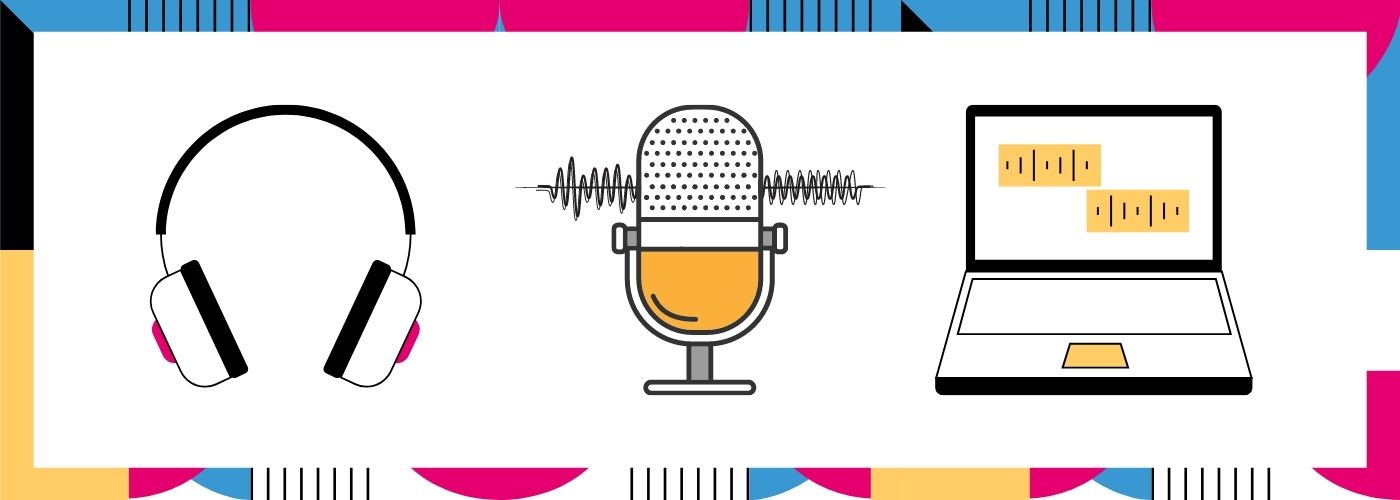Who Needs a Podcast Transcription Service?
Updated: March 18, 2022
Tips for Creating an Accessible Podcast [Free Guide]
If you’re reading this blog, you might be wondering whether you need a podcast transcription service.
While we’d love it if all podcasters offered transcripts, there are specific reasons why people may be interested in different types of professional transcription. This blog will go over two reasons you might want to use a podcast transcription service.
Using a Transcript to Edit Your Podcast
Transcripts are an excellent tool for streamlining your podcast editing process.
For many podcast producers, the editing process can be frustrating. Listening to a recording to trim and splice audio is time-consuming, requires careful focus, and is cumbersome for collaboration. However, certain services will transcribe audio or allow users to import an existing transcript; once a transcript is created or uploaded, the user can then edit the audio within the application by changing the transcript text.
Another way to use transcription during the editing process is to create scripts in Google Docs, where multiple stakeholders can collaborate within one document. The story and structure can take shape for narrative podcasts after recording interviews, so a transcript of recordings can be enormously helpful as producers figure out where to insert quotes, audio clips, sound bites, narrative content, and more.
Additionally, journalists can use transcripts for interviews. Rather than worrying about taking notes during an interview or writing down quotes precisely as they’re said, journalists can use transcription services to upload recorded interviews and easily pull quotes for content.
While we always recommend professional transcription for audience-facing content, ASR-produced transcripts can work well for podcast editing and specific journalism purposes.
Automatic Speech Recognition, otherwise known as ASR, is a technology that picks up human speech and converts it into text. You can upload your media to ASR software for free or for a small cost, and it will automatically transcribe audio into text.
ASR comes with more errors than professional transcription, but it’s much easier and faster to clean up an inaccurate transcript than to start from scratch. If you’re a journalist using ASR transcription to publish quotes, we recommend spending time editing your transcript to ensure your quotes are entirely accurate.
Learn how to make your podcast accessible ➡️
Publishing a Transcript For Your Audience
Another reason to use a podcast transcription service is to publish a transcript with your podcast for your audience.
Many hosting platforms and podcast apps don’t support transcription, so we recommend adding transcripts to your website underneath each embedded episode.
There are numerous benefits to sharing a transcript with your listeners, such as:
- Greater accessibility, which mean means you can reach a wider audience
- Boosting SEO, which helps you find new listeners
- Repurposing podcast content for new audiences
- Getting quoted and credited on other platforms
- Creating a better user experience with interactive transcripts
While ASR transcription is excellent for podcast editing, you’ll need higher quality, more accurate transcriptions for audience-facing content.
ASR typically provides 60-70% accuracy, whereas 3Play Media ensures a 99.6% accuracy rate through our 3-step transcription process, which uses technology and human transcriptionists.
Additionally, ASR transcription typically won’t provide adequate comprehension compliant with WCAG 2.0 Level A. WCAG-compliant transcripts require both speech and non-speech audio information needed to understand the content; however, ASR transcripts will often present blocks of text without speaker identification, sound effects, or sound design. Unless you can devote significant time to making edits and including necessary information for comprehension, professional, human-edited transcriptions are the way to go for accessibility and legal compliance.






